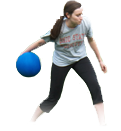
HOW TO LOWER YOUR RISK OF GETTING CANCER BY 10-20%
People who did this had an impressively lower risk of getting three of the four most common cancers in the U.S.

HOW TO LOWER YOUR RISK OF GETTING CANCER BY 10-20%
Want to lessen your chances of getting the big C? Get to the Gym and Keep moving! Consistent physical exercise may be the king of the cancer killers, according to a yuuuge! new meta-analysis from the National Cancer Institute. Researchers sifted through 12 studies on 1.4 million Americans and Europeans and found that those who worked out the most had a 10–20% reduction in three of the four most common cancers in the U.S.—lung, breast, and colon and rectal cancer—along with myeloma, head and neck cancers, and bladder cancer.
Men and women who moderately exercised—even if the time they spent exercising, like brisk walking, was slight—had a significantly smaller risk of developing 13 different types of cancer than people who were sedentary. Participants were less likely to suffer from breast, lung, and colon cancers (which we already knew); but they were also at a lower risk of developing tumors in their liver, esophagus, kidney, stomach, uterus, blood, bone marrow, head and neck, rectum, and bladder.
The top 10 percent of participants (a.k.a. those who spent the most time performing moderate or vigorous workouts each week) were as much as 20 percent less likely to develop most of the cancers in the study, compared to the 10 percent who were the least active, the researchers found.
Better news:
The more people exercised, the greater their risk for developing any of these 13 cancers dropped. Still need a reason to run, bike, swim, or hit the gym? (We didn’t think so.)





